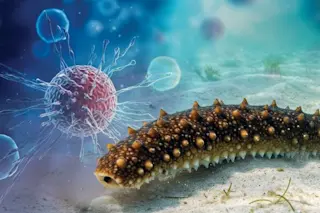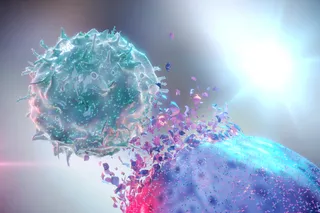The next breakthrough in cancer therapy could come from the seafloor, where sea cucumbers hold a secret solution. These unassuming creatures may not look the part of a medical hero, but a sugar compound they possess shows promise as a precious resource that may be able to stem the tide of cancer growth.
A recent study published in Glycobiology has shown that this sugar compound produced by sea cucumbers — called fucosylated chondroitin sulfate — can curb a particular enzyme responsible for the spread of cancer. Despite concerns about the limited availability of sea cucumbers, the compound is expected to become a crucial blueprint for future cancer research.
There are over 1,000 species of sea cucumbers slinking along seafloors all across the world. Yet, these animals have been continually harvested for culinary use, suffering great losses as overharvesting began to explode in the latter half of the 20th century.
This ...















